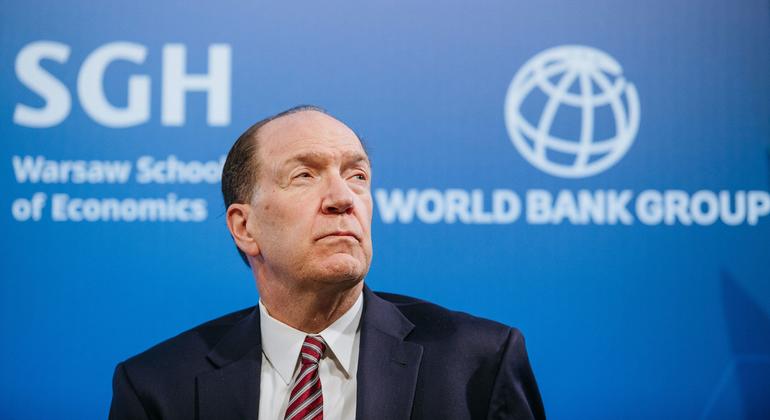David Malpass, a former senior United States’ Treasury official nominated by then President Donald Trump, served as chief of World Bank Group (WBG) since 2019. In a post on the social media platform LinkedIn, he said he intends to step down by June, one year before the end of his four-year appointment.
“I’m proud of what we have achieved during my term,” Mr. Malpass wrote, who previously was chief economist at the now-defunct investment bank, Bear Stearns.
“We’ve worked hard together to reduce poverty, increase economic growth, reduce government debt burdens, and improve living standards across the full range of human development, including education, health, social protection and jobs, gender, and access to clean water and electricity.”
Record financing levels
Under his leadership, the Bank Group more than doubled its climate finance to developing countries, reaching a record $32 billion in 2022. Mr. Malpass also led efforts to enable and increase private sector investment and trade. During his tenure, the World Bank has also enhanced its support for inclusive and sustainable growth, launching a pandemic fund, and developing a climate change action plan.
Highlighting other achievements, Mr. Malpass pointed to the Group’s $150 billion in response to the COVID-19 pandemic and $170 billion response to Russia’s invasion of Ukraine and its spillover effects.
“By the end of the fiscal year, we will be well-positioned to feature sustainability more clearly in the mission of the World Bank Group, align the mission with resources, and set in motion an effective evolution to increase the institution’s impact on people in the developing world,” he wrote on LinkedIn.
“I am eagerly looking forward to working on the multiple challenges facing economics, business, development, and global finance,” he continued. “As I have done throughout my public sector career, I will be looking for ways to improve people’s lives and living standards. This is an important and constructive opportunity for the World Bank Group to set its course.”
Established in 1944, the World Bank provides low-interest loans, zero to low-interest credits, and grants to developing countries to support investments in such areas as education, health, public administration, infrastructure, financial and private sector development, agriculture, and environmental and natural resource management.


